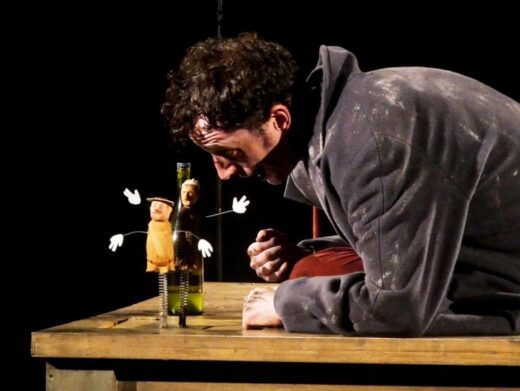
Printed
14 pages
I, Caliban
I, Caliban is part of a series of four plays inspired by Shakespeare and written by Tim Crouch. Crouch rewrites the plots by introducing the plays from the point of view of secondary characters.
This monologue uses techniques from object theatre: Caliban is at the same time a character and a director and he reenacts his story by representing the other characters with different objects. The performance targets a younger audience.
A fictional character narrates his own version of his story
Caliban, the slave of Prospero the magician, expresses his loneliness and the difficulty he has interacting with others. He retells his personal story, characterized by his submission to the magician since he arrived on Caliban's island, and by his desire for Prospero's daughter Miranda.
Antonio, Prospero's brother and the one responsible for his deposition, is washed up on the shores with the King of Naples and his crew. Caliban meets Trinculo and Stephano, two drunkards who come up with a plan to kill Prospero and steal his books.
However, when it is time to take action, Caliban thinks of his mother, and supernatural spirits take possession of him. He then goes back on his decision. Meanwhile, Prospero uses a ploy to get back his title as Duke of Milan. He suggests to the King of Naples that their two children, Miranda and Ferdinand, marry. The King accepts, and they decide to go back to Italy. They make fun of Caliban and insult him before abandoning him on his island.
First performance
Downsview School (Brighton), as part of the Brighton Festival.
Publications and translations
I, Shakespeare, Londres: Oberon Books, 2011
Moi Shakespeare, Catherine Hargreaves et Adèle Gascuel (trad.), Paris : "L'Avant-scène théâtre", 2018
(French)